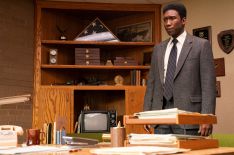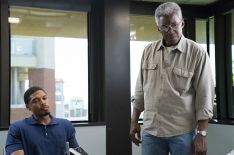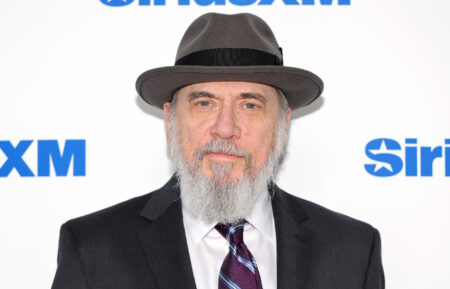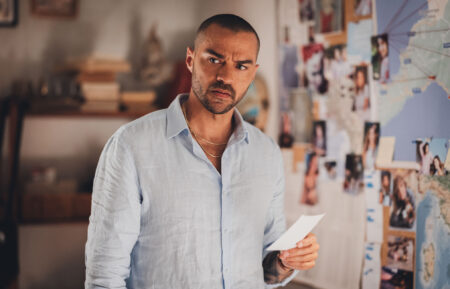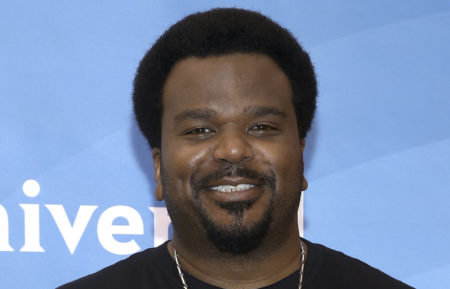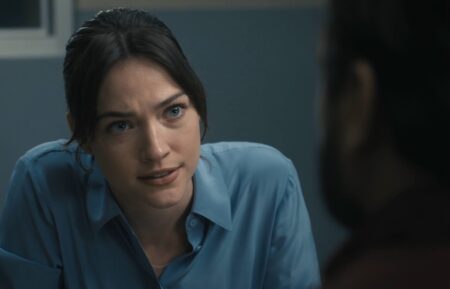‘True Detective’ Season 3 Finale Closes the Case on the Purcell Mystery (RECAP)
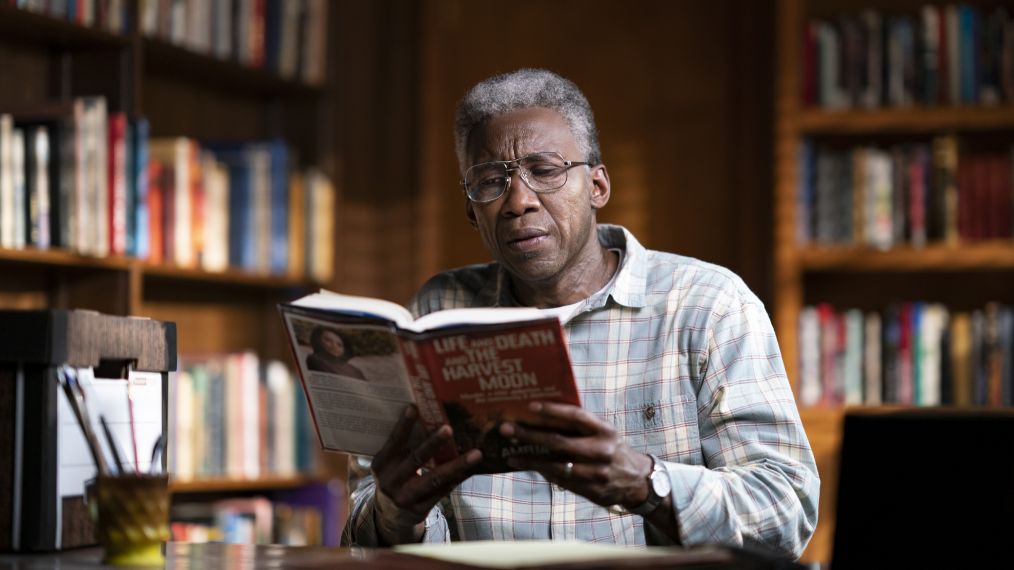
Spoiler Alert
[Spoiler Alert: Do not read ahead if you have not watched “Now Am Found,” the February 24 finale of True Detective.]
“We got an ending I guess, but do you feel like any kind of closure?”
That’s the question Roland West (Stephen Dorff) poses to his partner Wayne Hays (Mahershala Ali) in the season finale of True Detective. But Roland is also speaking to us, the audience, who have followed this mystery just as obsessively as the aging detectives. The final episode provided us the answers and clarity we were seeking, sometimes a little too conveniently, and yet do we feel a sense of closure? Or is that not what’s important here?
“Now Am Found” – written by showrunner Nic Pizzolatto – goes heavy on the explanation. The Purcell case is all but wrapped after Wayne and Roland track down Junius Watts (Steven Williams), aka Mr. June, the guilt-ridden former house servant of Mr. Hoyt. As the previous two episodes suggested, the mentally unstable Isobel Hoyt, who lost her husband and young daughter in a car accident, kidnapped Julie and raised her as her own daughter. William’s death was an accident, his head hitting a rock as Isobel pushed him during the struggle. Mr. June says he eventually helped Julie escape after years of being drugged and confined to the Hoyt compound’s “pink room.”
While the transparency is appreciated, Mr. June’s epilogue feels a touch superfluous. It’s a conclusion most viewers had already reached based on the information teased out in the preceding episodes. As I said last week, predictability isn’t always a bad thing, but if the answer itself isn’t going to be surprising, you could at least make the delivery less flat. And that’s not a knock on the performance of Williams, who portrays his guilt perfectly, especially when the former detectives refuse to arrest him; leaving him with the choice of continuing to live with his guilt or kill himself.
There is no grand conspiracy. No ties to season one and the pedophile rings. No cameo appearances from Matthew McConaughey or Woody Harrelson. The season truly was a Southern Gothic drama — a “madwoman in the attic” story. There isn’t even a shady scheme involving Edward Hoyt (Michael Rooker), who takes Wayne out to woods to question him about the murder of his security chief Harris James. The liquored-up Hoyt isn’t the nicest guy in the world, especially when he threatens to come after Wayne’s family if the investigation continues, but he had no involvement in what his daughter did, other than allowing it to persist once he found out.
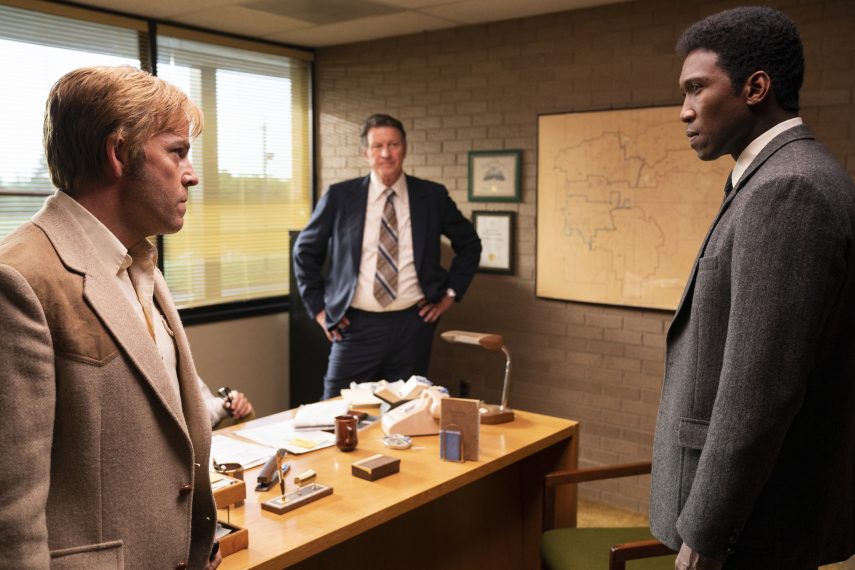
HBO
It’s a dark and depressing conclusion. Or at least it appears to be. Wayne and Roland find out that after her escape, Julie joined a convent, using the name “Mary July,” information that Amelia (Carmen Ejogo) discovered back in 1990 – Wayne really should have her read her book a long time ago! While Julie spent her time at the church helping the needy, she was unable to save herself, dying of AIDS in 1995. Or at least that’s the story the nuns have told people over the years.
“What if there’s another story?” says the ghost of Amelia, a figment of Wayne’s crumbling imagination, spurred on by a passage he reads in her book (which conveniently lands on the right page). The book references Mike Ardoin, the schoolboy who was devastated by Julie’s disappearance, and Wayne convinces himself that Julie is still alive. In a too-good-to-be-true revelation, Mike grew up to be the groundskeeper for the very convent Julie worked at, and the two fell in love, got married and started a family.
At least that’s what Wayne tells himself. It could just be the tormented detective inside that is unable to let go of this case; dissatisfied with the closure provided by Mr. June. And so he finds Mike’s address and goes to look for himself. When he gets there, his dementia causes him to forget where he is or what he was doing there in the first place. He sees a woman (Julie) and her daughter (Lucy) tending to the front lawn and approaches them to ask for help. It’s a sweet, understated moment, as the woman who Wayne has been trying to find and bring home all these years ends up being the one to help him find his own way home, back to his family.
It’s a hopeful ending. Maybe a little too hopeful. And one that reminds us, that much like season one, this story has always been about character, the titular detective. This season was all about Wayne. A man displaced in time and consumed by tragedy. The Purcell case was important but mostly due to how it affected Wayne and his relationships. It drove a wedge between his friendship with Roland, and it took decades for the ol’ ballbusting partners to reconcile their differences. It also made Wayne distant from his children, and most importantly, it permeated his relationship with Amelia.
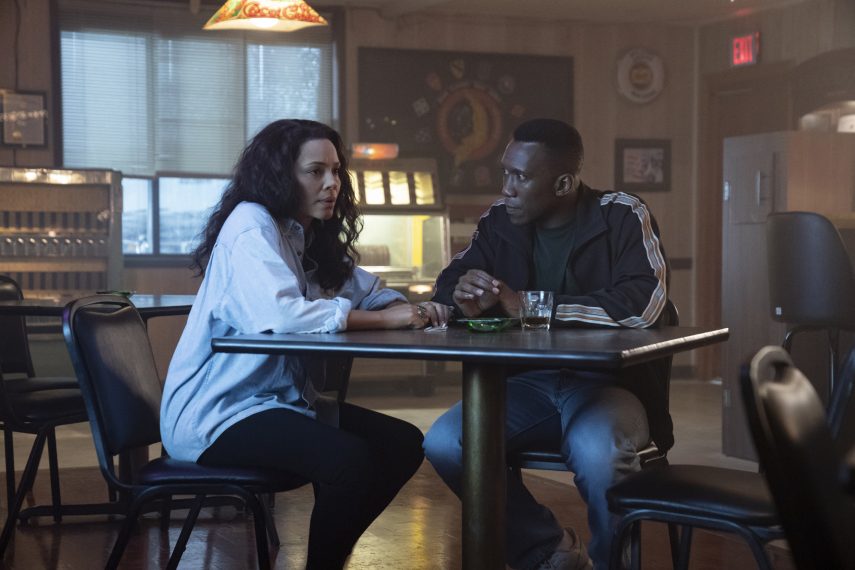
HBO
In 1980, their relationship falls apart when Amelia publishes her article about the mishandled investigation, and Wayne refuses to sell her out – accepting a demotion to a desk job instead. They later patch things up and promise to marry, but the case continues to plague their marriage for the next decade. But after a frank heart-to-heart in 1990, the two agree to put the case behind them for the sake of their family. Amelia scraps her plans for a sequel book and Wayne quits the force. A brief glimpse of a post-1990 timeline shows happier times. Wayne is head of security at a college where Amelia teaches. He drops by her class, and they share a smile. The two seem to have finally found peace.
It’s another hopeful conclusion and one that is reflected in 2015, which ends with Wayne sitting on the porch with his son, his daughter-in-law, his estranged daughter and Roland, watching his grandkids ride their bikes in the street, much like how this season opened with the Purcell kids. There is a sense of reconciliation and contentedness. But before we get too comfortable, Wayne drifts into his memories one last time, first to the night he proposed to Amelia and then to his army days – the final shot of the series is a young Wayne, scared, lost and alone, as he disappears into the Vietnam jungle.
That final image is unexpected and surprisingly powerful. It doesn’t exactly reframe the story we’ve been watching this season, but it adds another layer of depth. It’s as if to remind us that Wayne has been possessed by darkness and horrors way before the Purcell case came into his life. The things he witnessed as a young man working recon in Vietnam. The things he never wanted to talk about with anyone. He joined the army so that his mom could get a pay-out if he died out there. Wayne didn’t die, but part of him did, and that’s what he’s been searching for ever since.
And so did this final episode bring closure? Partly. But that’s beside the point. Even when an answer is found, whether in fiction or in life itself, we still have to live with the results. The story keeps going, as Amelia put it. “All this life, all this loss — what if it was really one long story that just kept going and going until it healed itself? Wouldn’t that be a story worth telling? Wouldn’t that be a story worth hearing?” Ultimately, even if the season one links were a red herring, I think the story of True Detective season three was worth hearing.
Extra Case Notes
-Wayne gives the note with Mike Ardoin’s address on it to his son Henry, who doesn’t throw it away. That certainly leaves things open for Wayne to continue to pursue the case in the future.
-While the main story was obviously about Wayne, we must not forget about Roland. Stephen Dorff put on a splendid performance all season, and he has one of the stand-out scenes of the finale, where after getting into a bar fight with a burly biker gang, he is comforted by a stray dog. I wouldn’t be opposed to a spin-off series where Roland opens up his own dog grooming business.
-The performances from Mahershala Ali and Carmen Ejogo have also been fantastic throughout. Perhaps the scripts could have provided Ejojo more to work with at times, but everything she was given she nailed, making Amelia a character who refused to be shoved in the background. And Ali, who won an Oscar while this episode was airing, was uniformly excellent, displaying different levels of despair and confusion across multiple timelines.

